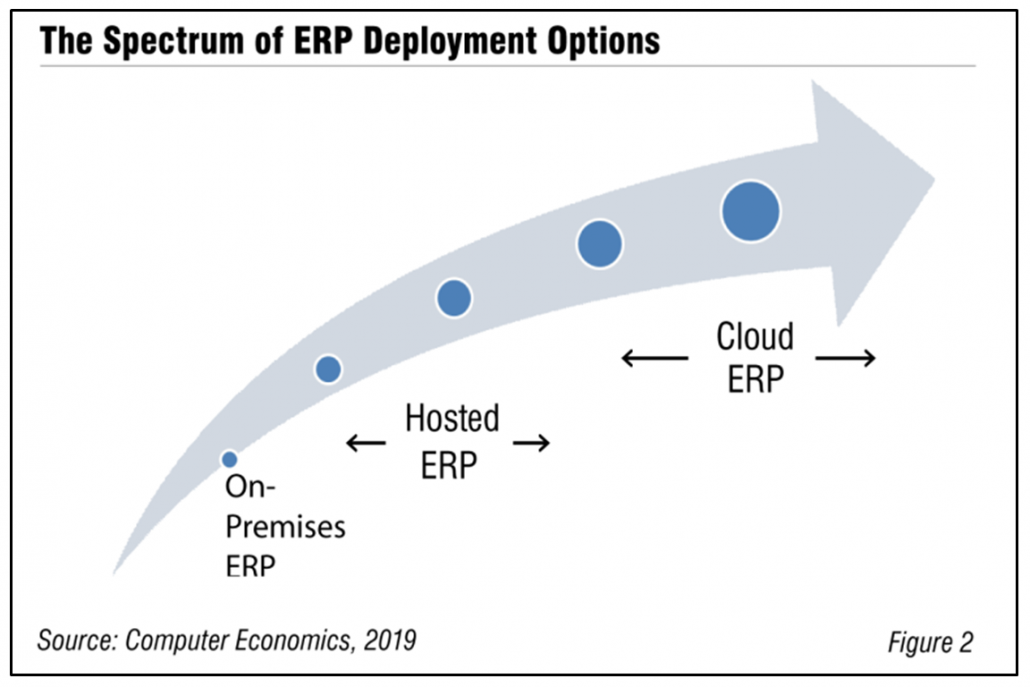In the battle for hearts and minds, ERP has been something of a “last stand” for on-premises systems. Nevertheless, cloud ERP has been rapidly gaining ground as resistance to the cloud is falling, the number of cloud ERP offerings is increasing, and the functionality gaps are narrowing.
As a result, traditional ERP vendors have been forced to respond to the threat. In the worst case, they simply offer hosted versions of their on-premises ERP systems. They have made no architectural changes to their systems to satisfy the essential characteristics of cloud computing. Yet, traditional vendors offer these hosted products with monikers such as “cloud,” “SaaS” or “on-demand,” which adds to the confusion of what is really being provided.
Some traditional ERP providers have gone a little further than hosting. For example, they may use virtualization at the infrastructure layer, and sometimes at the database layer, to allow customers to share computing resources. Another tactic is to add options for cloud-based point solutions, such as travel and expense management or time reporting.
Complicating matters further, as shown in our report, The Differences Between Cloud and Hosted ERP, and Why They Matter, there is also a range of cloud ERP solutions—some are “more cloud” than others. Some exhibit the characteristics of cloud computing more completely—some, less so. Therefore, there is a range of ERP options, as shown in Figure 2 from the full report.

“The choice between cloud ERP and hosted ERP is not binary,” said Frank Scavo, president of Avasant Computer Economics. “While one vendor may offer a hosting option that is really no different from an on-premises deployment, another vendor may offer a hosting option that does have some cloud characteristics. At the same time, some cloud ERP providers do not act very ‘cloudy’ in certain aspects. So, there is a whole range of options between on-premises and cloud ERP.”
How can buyers know whether a vendor’s offering is cloud ERP or hosted ERP, and to what extent? The full report explores the defining characteristics of cloud ERP and hosted ERP and why these differences matter in terms of the benefits that customers can expect to receive from each. We conclude with factors that affect the decision on whether to short list cloud and/or hosted ERP providers as well as special considerations in evaluating and negotiating with candidate vendors.
This Research Byte is a brief overview of our management advisory on this subject, The Differences Between Cloud and Hosted ERP, and Why They Matter . The full report is available at no charge for Avasant Research subscribers, or it may be purchased by non-subscribers directly from our website (click for pricing).


